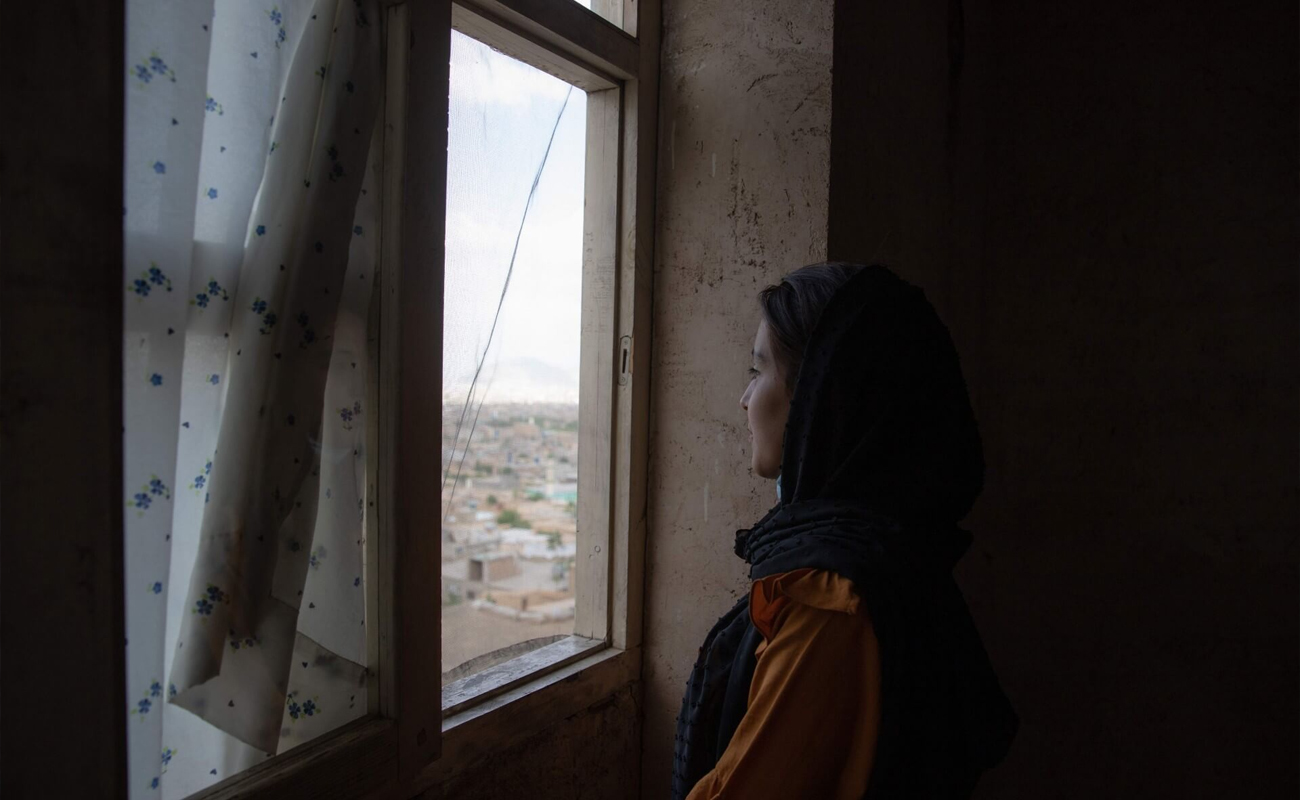Taliban's Growing Restrictions on Women: A Sign of Nostalgia?
Photo Credit: UN Women/Habib Sayed Bidell.
By Mohammad Noman Baber
As governments shift, so do the rules and principles of governance. They then align with the preferences of the ruling authority. In this context, the re-establishment of the Islamic Emirate of Afghanistan on the 15th of August 2021 brought a series of initial directives under the supreme leader of the Islamic Emirate of Afghanistan. Of the approximately 80 directives issued by the supreme leader 54 specifically targeted women's rights. These directives included the closure of girls' schools beyond the sixth grade, restricting women's return to work, the enforcement of the Islamic dress (Burqa), restrictions on women's movement without guardians, and, last but not least, the closure of parks and beauty salons for women. Initially, there was a sense that certain orders might be short-term measures, leading to the hopeful expectation that girls' schools could reopen soon. But not only have schools not reopened but additional stringent orders have been imposed on top of the ones previously mentioned.
In the sense of nostalgia for the early era of the Islamic Emirate of Afghanistan, the Taliban has reintroduced strict laws targeting women’s rights in both the social and political spheres. The closure of girls' schools without a defined timeline has exposed the Taliban's inclination to marginalize women in society and show their commitment to the ideological principles of their past practices. Unfortunately, over the span of two years, there has been no noticeable progress in the initiative to reopen girls’ schools, as Kate Clark, co-director of the Afghanistan Analysts Network mentions: “Education and literacy are so strongly valued in Islam that the Taliban could not ban girls’ schools on Islamic grounds, so they always said they would open them when security improved. It never did. They never opened the schools.”
The matter of girls' schools had not yet been resolved when, in late September 2022, Sheikh Neda Mohammad Nadeem, the Acting Minister of Higher Education of the Islamic Emirate of Afghanistan, issued an order to close girls' universities until further notice. However, this decision sparked both internal and external reactions toward the Taliban. Women expressed their opposition through public demonstrations, while international political figures were united in demanding the prompt revocation of the Taliban's decision. Despite the mounting pressure, the Taliban stood firm and consistently upheld their ideological beliefs. Thus, they continued their past practices against women.
In conjunction with the shutdown of women’s universities, the Taliban also prohibited them from engaging in employment within foreign institutions. This extended to preventing women from working in United Nations offices. They also subsequently banned the visiting of parks by women and closure of beauty salons for women. This decision triggered strong reactions both within Afghanistan and from the international community. Despite the outcry, the Taliban remained steadfast in their decisions and upholding their directives. By imposing these strict measures and marginalizing women, the Taliban reaffirmed their commitment to the principles of the initial Islamic emirate era in the 1990s, which further underscores their ongoing nostalgia for those earlier times.
Although nostalgia is a powerful force, and the sense of it can be clearly seen among the Taliban, accepting the hypothesis that the harsh laws of the Taliban are the result of the nostalgia may be true to a certain extent. However, it is not the sole driving force behind the Taliban's actions. The group's motivations are likely shaped by a complex interplay of factors, including political considerations and the desire to establish their authority in a rapidly changing Afghanistan. The current de-facto government of the Taliban is facing a new and aware generation of young people, people who witnessed a democratic system, and modern societal norms. Although the Taliban implemented strict laws by force, large cities witnessed protests by women demanding their civil and human rights. Thus, this can show the possibility of reforms and changes in the long term, especially in the contemporary world where modern globalization, intensified international relations, and global awareness makes it difficult for any regime, even one as insular as the Taliban, to completely isolate itself from the world and revert to past practices.
Mohammad Noman Baber, is currently pursuing a degree in Political Science at York University in Toronto, Ontario. He has been an executive committee member of the Association of Private Schools in Afghanistan. His experiences reflect a blend of academic pursuit, advocacy, and a commitment to sharing insights on crucial issues.
Academicians and Officials interested to publish their academic pieces on this page, please approach us through: opinions@aissonline.org
The article does not reflect the official opinion of the AISS.

